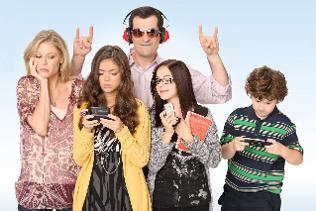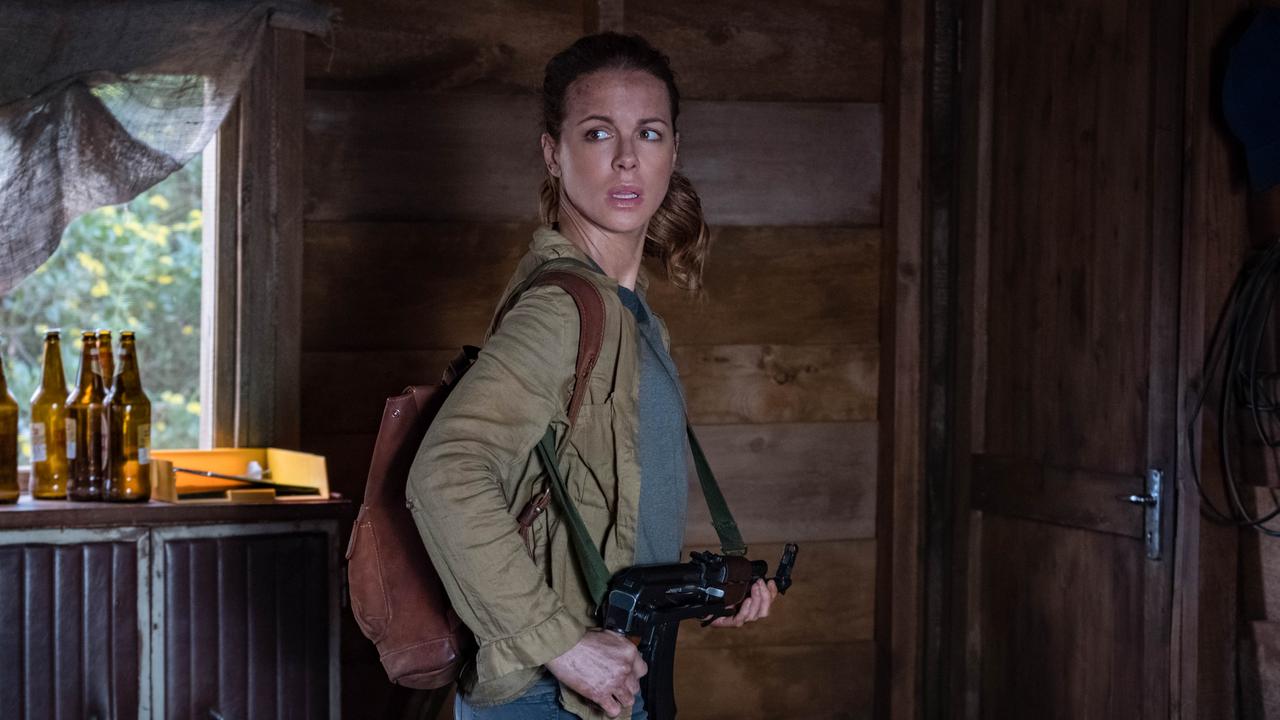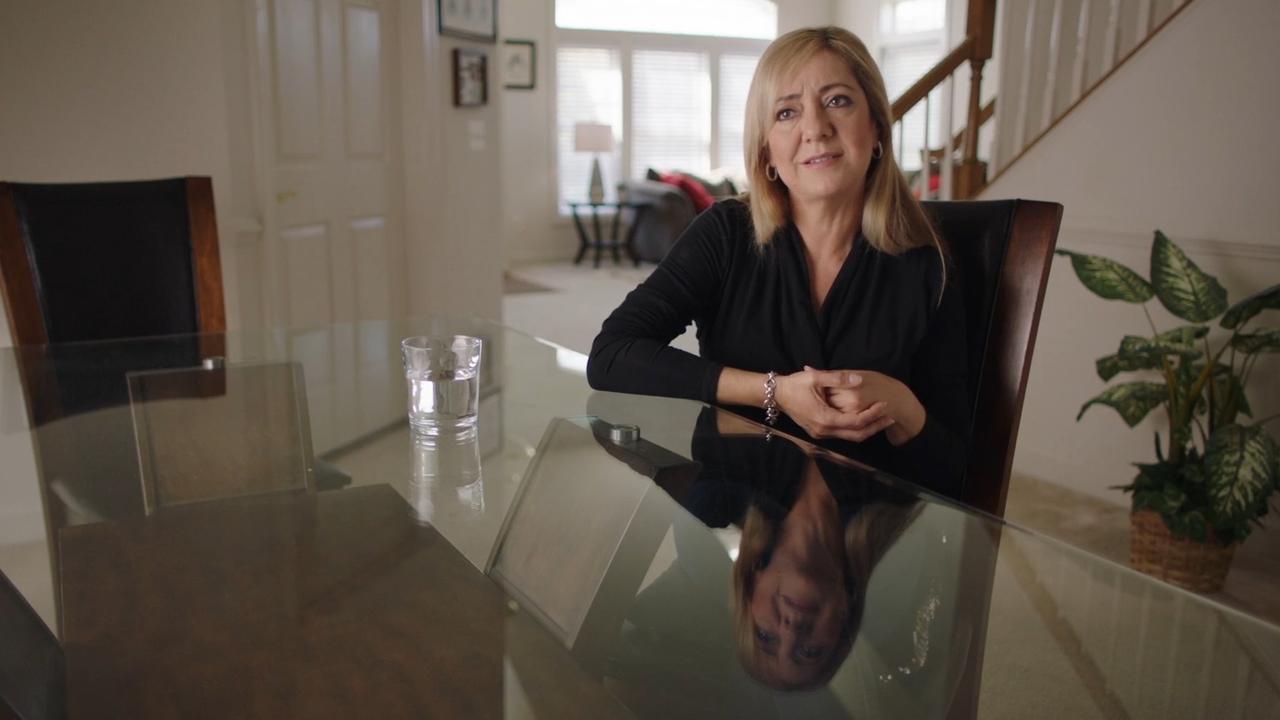Full house
Audiences hit the jackpot with Modern Family, a new sitcom that takes a decidedly non-nuclear look at how we live together

Audiences hit the jackpot with Modern Family, a new sitcom that takes a decidedly non-nuclear look at how we live together
TEN'S much-promoted new half-hour show Modern Family declares itself seductively, and often quite hilariously, as the best comedy since the US version of The Office. Like that brilliant piece of comic mayhem, based on Ricky Gervais's British series of the same name, the wonderfully complicated characters of Modern Family bounce off each other in ways that are often unpredictable and sometimes surprisingly revelatory. The series gives the impression of being a sober study of an extended American middle-class family of 10 members of varying ages. That restrained and worthy mission is, however, completely sabotaged by the disarray, disorder and frequent pandemonium of the three families involved.
All are related in some way to patriarch Jay (Ed O'Neill), a true guy's guy who has found a much younger wife. Gloria (Sofia Vergara) is passionate, sassy and the fiercely doting mother of Manny (Rico Rodriguez), her chubby 11-year-old who is already determinedly pursuing beautiful women when he's not writing poetry.
Father of three "Cool Dad" Phil (Ty Burrell) digs all his kids' lingo and music while wife Claire (Julie Bowen), Jay's daughter from his first marriage, is determined not to allow them the promiscuous puberty she enjoyed.
Jay's son from his first marriage, Mitchell (Jesse Tyler Ferguson), lives with his companion Cameron (Eric Stonestreet), the happy couple having taken "the next step" by adopting a Vietnamese baby.
The stylish wit and self-assurance that has distinguished Modern Family from its brilliant first episode -- it attracted 1.55 million viewers locally on debut, winning the night against over other high-rating shows such as NCIS, MasterChef Australia and Australia's Got Talent -- emerges from the practised skills of its creators, Steven Levitan and Christopher Lloyd. Both have a commanding list of comedy credits to their names, including many years of writing and producing the wonderful Frasier. Each episode of Modern Family is structured as an adult drama interspersed with small convulsions of surprise, confusion and hysteria. Like Frasier, the show, with its distinctly edgy and ironic sensibility, has won its large US audience by treating them as grown-ups.
"The very initial idea emerged from the fact that for 20 years we had both written about adults, in the form of sophisticated comedies, but never really about family and kids, so we decided we should try that," says Lloyd. He and Levitan played with the idea of a documentary concept called "My American Family", a story told from the point of view of a Dutch filmmaker. He was to be a documentarian, now in his 30s, who 20 years earlier had lived with the family.
They dispensed with the filmmaker but retained the idea of a kind of mock-formal study of the family, including the almost standard cinema verite-style interviews.
"At the time we wondered what the prototypical American family was and decided there wasn't one, so we decided on three typical families who among them encapsulated a kind of norm," Lloyd says. Mockumentary in style, like The Office, Modern Family represents the first time this increasingly familiar format has been adapted to the traditional family sitcom.
"The visual personality of the show came about after the Dutch character was jettisoned, but we wanted to film the confessional interviews straight to the camera, in the same locations each episode, to lend some structure," Lloyd says. "And if that comes over a little anthropologically that's a good thing because this is a study of family life in the way that The Office is studying workplace relations."
The elaborately produced, single-camera comedy shows of the past decade, such as Scrubs, My Name is Earl, Nurse Jackie and Weeds, were one way to push TV humour away from its long-time dependency on predictable one-liners, inflexible staging and stylised acting. The mockumentary offers yet another direction. "You can take characters to more places and get that sense of watching something that you're not supposed to see that you can never get in a multi-camera show filmed in front of an audience of 300 people," suggests Lloyd.
In this school of comedy there are no jokes as such and rarely punchlines; just characters and situations that make you squirm and often laugh out loud. Gervais calls it "a comedy of embarrassment, combined with ego and desperation", and its practitioners all seem to have a highly developed awareness of the precise calculus of comedy and social humiliation. But sometimes you smile empathically, too, as you grow a little in love with the characters. Modern Family is a show that gets away with a lot of emotion, though it's never mawkish or sentimental. Director Jason Winer, also the show's co-executive producer, keeps it tightly under control, alternating the show's distinctive controlled pathos with often deftly physical comedic ridiculousness and some hilarious dark verbal comedy.
"It's not enough to offer a piece of entertainment that only has jokes, or a too-smart-for-the-room cynical humour, without having some heart to it," Lloyd says. "I always put it in dietary terms: why only give the exciting, trashy but tasty junk food on one side of the tray when you can also offer something more nutritious on the other."
Levitan and Lloyd's creative strategy was always to underlay the show with real emotion to balance out the highly stylised comedy. "If you can make people really laugh, and if you give them great visuals they can talk about the next day, but at the same time move them in a surprising way, you've got them hooked," Lloyd says.
Much of the humour in The Office stems from the way the characters manipulate the documentary format. They often use it knowingly for their own purposes, sometimes commenting on it. In Modern Family comedy emerges as the characters reveal their disingenuousness. They are seemingly never aware of how one set of moments, where they disclose something of themselves, so devastatingly joins to all the others.
The camera is usually locked off during sequences, hovering slightly while maintaining the same wide shot. Lloyd says this kind of coverage offers the show's audience "the privileged view" of its characters' lives and is far more subjective than "the universal perspective on things" of conventional comedy with every angle covered from every point of view. "It's really just a case of less being more, too; we shoot far less footage, covering each scene far less than you would in a standard single-camera show," Lloyd says. "It does give a rawer feel."
The characters lapse into silence, react to each other without the others knowing what they are doing, or just sit quietly. This approach allows the actors room to breathe, and much of the humour appears ad-libbed.
"We do encourage them to keep with the script for the first few takes, then, because we're very hands-on during the filming, we suggest stuff as we go," Lloyd says. "Then we do a final take and tell them to just do whatever comes to mind, either direct to camera or let them wander off in their own direction." He says a surprisingly large number of these off-the-cuff takes end up in the final product.
This week's episode pulls back on the zaniness and looks at the issues of bonding: not easy in a family when the patriarch is married to a voluptuous goddess younger than his own kids, his daughter's husband doesn't relate to him and whose son just can't drop in with his husband to follow the baseball on TV with his dad.
This episode expands on the family relationships, pairing off cast members that so far have spent little time with each other, except for Mitchell and Cameron, who go off on a shopping adventure to Costco, the discount retail chain. At his wife's urging, hyperactive Phil forces some hanging-out time on his deadpan father-in-law, which ends disastrously of course, and Claire and Gloria disarmingly switch kids for the day.
Gloria takes Alex (brilliantly played by Ariel Winter), the too-smart-for-her-own-good middle daughter of Phil and Claire, on an outing. Alex quickly launches into a series of personal questions, including how many men Gloria has slept with and the location of her tattoos. "Have you ever kissed a woman?" she asks. "That's no way to talk to your grandmother," Gloria replies quickly.
The child actors are remarkable in Modern Family, poised, alert and capable of larcenous timing, sneaking moments away from the quite brilliant experienced actors who play their parents. "The danger with kid actors is that they seem polished and professional but never like kids; ours still seem like children and behave in childlike ways," Lloyd says. "We are grateful to the casting gods for that one."
First Watch has one final question for the comedy writer and producer: how does he do it? "The secret to writing TV comedy is to create interesting characters and situations but don't be afraid to go three pages without a laugh because sometimes true emotion is the thing that will bring people back."
I only wish Australia's comedy writers heard that remark.
Modern Family, Tuesday, 8pm, Ten.


